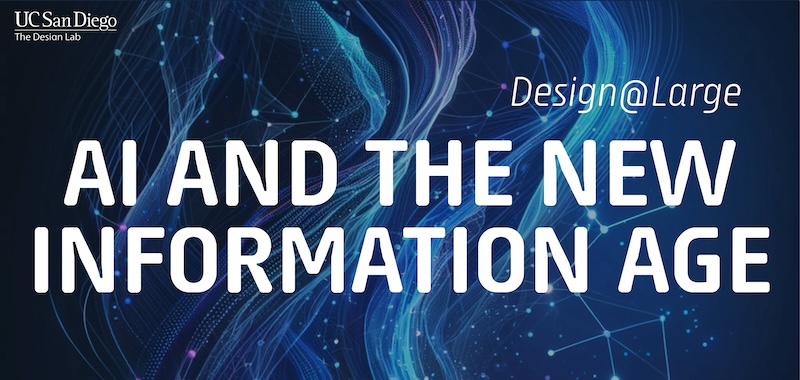Apr 17, 2024–Apr 17, 2024 from 4:00pm–5:00pm
Intelligence Augmentation through Lens of Interactive Data Visualization

About Intelligence Augmentation through the Lens of Interactive Data Visualization
Recent rapid advances in machine learning have brought new energy to the future of human + machine partnerships. In this talk, Arvind Satyanarayan will use three research threads on interactive data visualization to better understand the balance between automation and augmentation. First, Satyanarayan will describe how new specifications of visual and non-visual data representations allow us to reason about visual perception and cognition. Second, Satyanarayan will explore how visualization can be used to bridge human mental models and machine-learned representations. And, finally, Satyanarayan will discuss how data visualization already exhibits an epistemological crisis of truth — one that generative models threaten to further widen.
About the Speaker
Arvind Satyanarayan is Associate Professor of Computer Science at MIT, and a member of the Computer Science and Artificial Intelligence Laboratory (CSAIL). He leads the MIT Visualization Group, which uses visualization as a lens to explore how software systems can enhance our creativity and cognition, while respecting our agency. Satyanarayan's work has been recognized with an Alfred P. Sloan Fellowship, IEEE VGTC Significant New Researcher award, and best paper awards at academic venues (e.g., ACM CHI and IEEE VIS), and honorable mentions amongst practitioners (e.g., Kantar's Information is Beautiful Awards). Visualization systems he has helped develop are widely used in industry (including at Apple, Google, Microsoft, etc.), on Wikipedia, and by the Jupyter/Python data science communities.
About AI and the New Information Age
In 2019, GPT-2 could not reliably count to ten. Only four years later, deep learning systems can write software, generate photorealistic scenes on demand, advise on intellectual topics, and combine language and image processing to steer robots. As AI developers scale these systems, unforeseen abilities and behaviors emerge spontaneously without explicit programming. Progress in AI has been swift and, to many, surprising.
— Managing AI Risks in an Era of Rapid Progress, Bengio, Hinton, et al.
Along with rapid advancements in AI research, there are increasing concerns. Many concerns stem from a growing disconnect between the technology-centric approach to the creation of AI technologies and their inextricable embedding into complex personal, social, and cultural contexts. The theme of the Spring 2024 Design@Large is AI and the New Information Age. A primary focus is designing information spaces, places that foster thinking, in this new information age.
Date and Time
Apr 17, 2024–Apr 17, 2024
from 4:00pm–5:00pm
Location
Design & Innovation Building, Room 208
Event Registration
Registration for this event is required.
Visit the registration page for details.
Event Fee
Free
Contact
Design Lab Operations • dlab-ops@ucsd.edu
Audience
Faculty, Staff, Students, The General Public